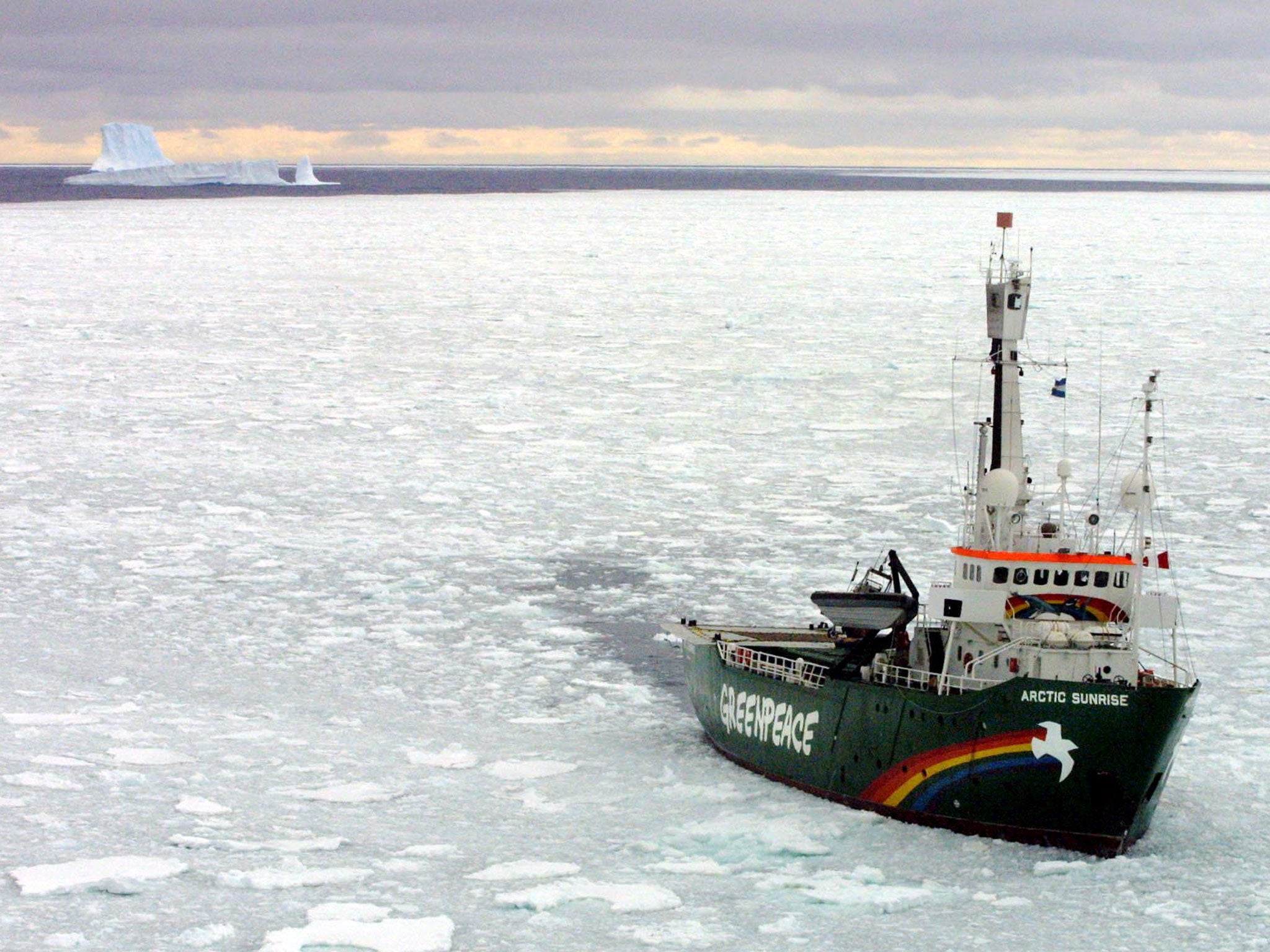Arctic ice-melt will bring frosty relations as nations navigate across North Pole

The loss if sea ice in the Arctic will allow ships to navigate freely across the North Pole by the middle of the century and could lead to unprecedented geo-political tensions between countries that have territorial claims in the region, scientists said.
Ice-breaking ships that are only moderately strengthened against sea ice will be able to cross the Arctic Ocean with impunity during the late summer months starting from about 2050, the scientists found in a study of how the loss of the floating sea ice will affect commercial shipping.
New routes will open up between the Atlantic and Pacific Oceans which will allow shipping companies to abandon traditional courses through the Panama and Suez canals. Instead, they will be able to sail unhindered over the top of the world for much of the summer, the scientists found.
However, long-standing tensions between the Arctic nations, even between traditional allies such as Canada and the United States, will surface as nations vie for political and economic control of the new shipping lanes, said Laurance Smith, professor of geography at the University of California at Los Angeles.
“The development is both exciting from an economic development point of view and worrisome in terms of safety, both for the Arctic environment and for the ships themselves,” said Professor Smith, co-author of the study published in the journal Proceedings of the National Academy of Sciences.
The sea ice of the Arctic during the summer months has melted by about 25 per cent on average in terms of surface area over the past 30 years. Scientists believe this is down to climate change caused by rising levels of carbon dioxide in the atmosphere.
Last September, the month of the minimum sea-ice extent, set a new record. Scientists estimated that sea ice covered 1.32 million square miles, which was nearly 300,000 square miles – an additional area of open ocean greater than the state of Texas – less than the previous record minimum set in September 2007.
Arctic experts believe that a totally ice-free summer Arctic could occur as early as 2030, with some suggesting it could happen within the next five to ten years. Almost all computer models predict an ice-free summer in the Arctic Ocean by the end of this century.
The latest study found that even under moderate climate-change scenarios, where rises in carbon dioxide do not follow the highest-possible course, could still lead to new Arctic shipping lanes opening by the around the middle of the century.
“We’re talking about a future in which open-water vessels will, at least during some years, be able to navigate unescorted through the Arctic, which at the moment is inconceivable,” said the study’s co-author, Scott Stephenson of UCLA.
Polar icebreakers will soon be able to cross directly over the North Pole rather than traversing the Northwest Passage around the coast of Canada and Alaska, or the Northern Sea Route along the coastline of Russia. “Nobody’s ever talked about shipping over the top of the North Pole. This is an entirely unexpected possibility,” Mr Stephenson said.
“No matter which carbon emissions scenario is considered, by mid-century we will have passed a crucial tipping point – sufficiently thin ice – enabling moderately capable icebreakers to go where they please,” he said.
At the moment, the Northwest Passage is navigable in summer only about once in every seven years, making it too unreliable for commercial shipping. But in 40 years’ time, it should be accessible every year, creating commercial tensions between Canada and the US given that Canada claims that the passage falls under its sovereignty whilst the US insists it is an international shipping route.
Meanwhile, Russia could lose out to its lucrative trade in escort fees from vessels navigating the Northern Sea Route, the scientists said. The disappearance of the sea ice could mean that ships take the shorter route over the North Pole, outside the jurisdiction of the 200-mile exclusive economic zone off the coast of Russia – although Russia has made territorial claims extending out to the North Pole.
Join our commenting forum
Join thought-provoking conversations, follow other Independent readers and see their replies
Comments
Bookmark popover
Removed from bookmarks